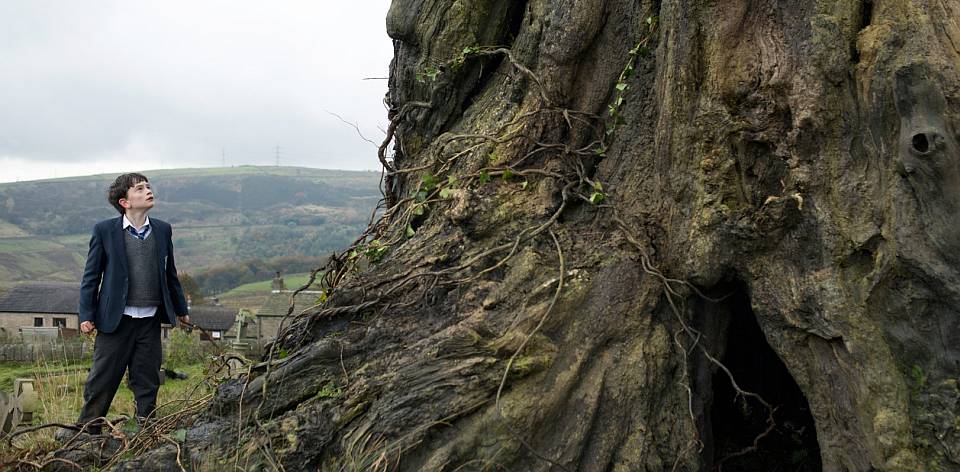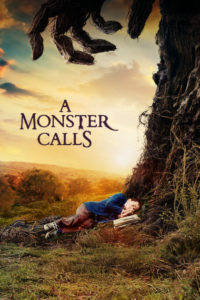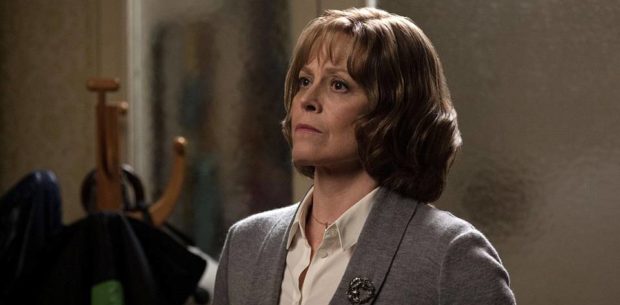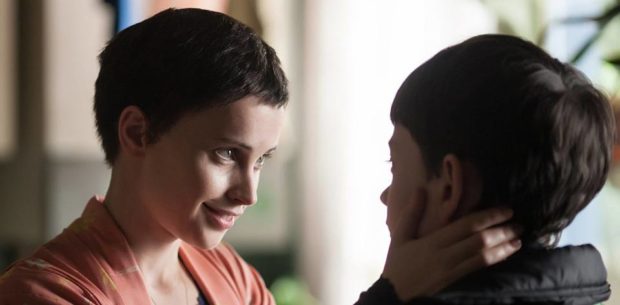Monsters have long been used as stand-ins for the basest of fears and emotional issues. King Kong was a representation of otherness. Godzilla was a reaction to the devastation of bombs dropped on Japan. Earlier this year, Colossal filtered alcoholism and abuse through the lens of giant monsters. In this tradition, A MONSTER CALLS is about the inner world of a child in a state of denial.
Based on the children’s novel of the same name by Patrick Ness, it follows Conor O’Malley (Lewis MacDougall) who is dealing with quite a bit. His mother (Felicity Jones) is in the end stages of terminal cancer, he is bullied at school, and his strict grandmother (Sigourney Weaver) makes his life difficult. Visited in the night by a tree-like Monster (voiced by Liam Neeson), he is promised three stories. When the Monster is done, Conor must tell his own story and deal with his “truth.”
“Stories are wild creatures,” advises the Monster. “When you let them loose, who knows what havoc they may wreak.” If you take this together with the old adage about our personal histories simply being the stories we tell ourselves, then A MONSTER CALLS is a modern fable about a boy on a the cusp of manhood who must confront his own authorship far too soon. On a more base level, it’s about the monster that denial can be, and how our internal demons and impact others.
What is surprising about the telling is just how matter-of-fact it all is, structuring the narrative around three central stories. Conor’s waking hours are mundane, save for his bullying, a stark contrast with his vivid imagination. It’s a rare youth-oriented piece that shows us the realities of death and dying, as a “boy…too young to be a man” gets glimpses of an increasingly frail Jones, or is asked to make cups of tea while his mother and grandmother argue in the other room.
That said, director J. A. Bayona (the upcoming Jurassic World: Fallen Kingdom) makes the most of the gorgeous watercolour/CG blended animation in the story sequences. Mostly narrated by Neeson’s distinctive brogue, the pieces tell the tales of old kings and apothecary, while a third more clearly connects to Conor’s anger over being made invisible. The impact on the ‘real’ world is the “remarkably pitiful” destruction of some of his grandma’s property.
Just like The Neverending Story, the ultimate power behind A MONSTER CALLS is in giving voice to the unnameable. Conor naming the real reasons for his fear and anger is a devastating moment that smacks of authenticity. No matter the age of the audience member, this is one monster that as many people as possible should face.
[stextbox id=”grey” bgcolor=”F2F2F2″ mleft=”5″ mright=”5″ image=”null”]2017 | US, Spain | DIR: J.A. Bayona | WRITERS: Patrick Ness | CAST: Sigourney Weaver, Felicity Jones, Toby Kebbell, Lewis MacDougall, Liam Neeson | DISTRIBUTOR: eOne (AUS) | RUNNING TIME: 108 minutes | RELEASE DATE: 28 July 2017 (AUS) [/stextbox]







